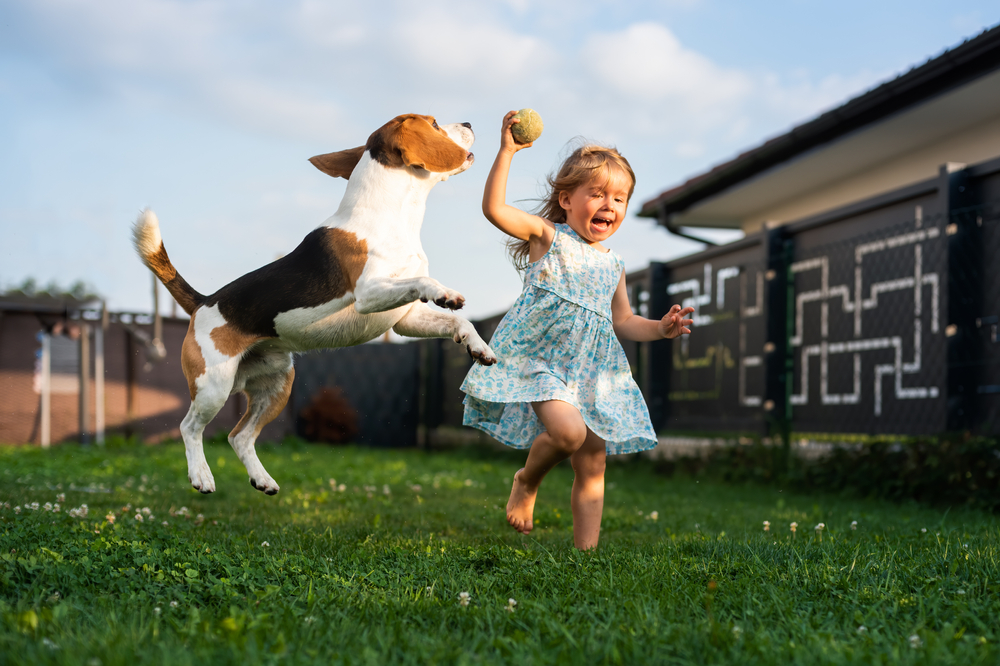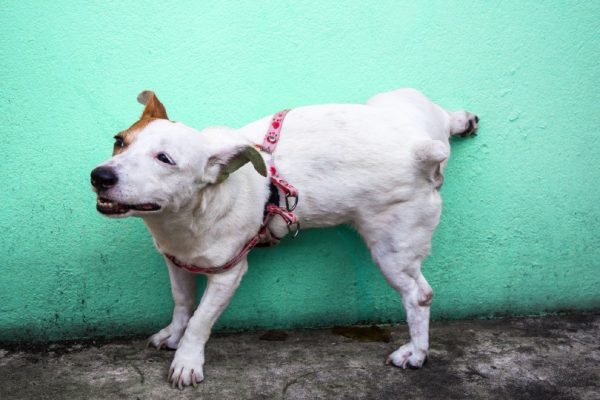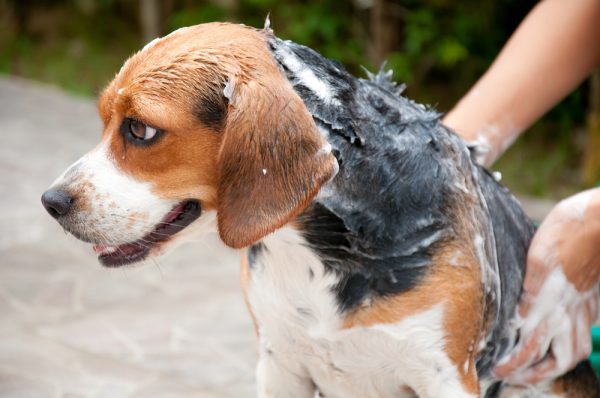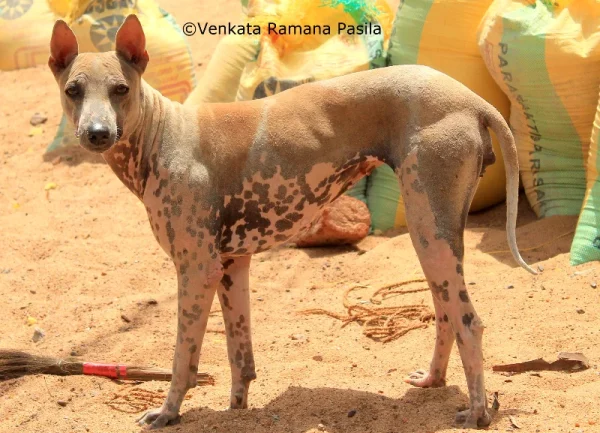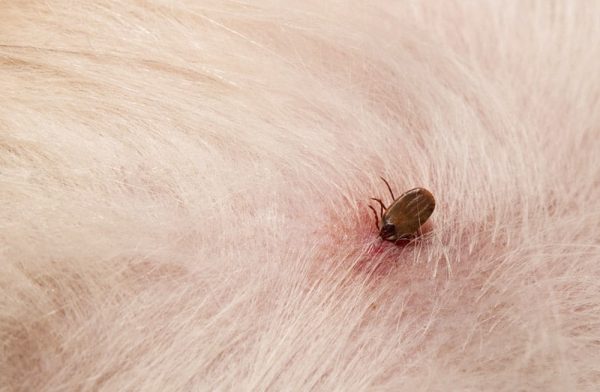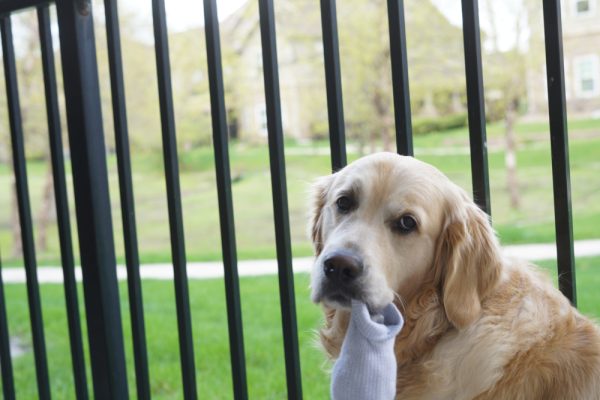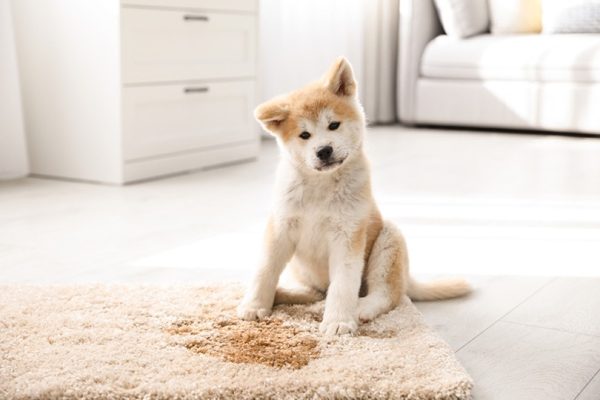In this article
View 3 More +Dogs showing aggression toward any child is a huge red flag that needs addressing straight away. Most aggression is due to fear, but there can be several different factors that play into dogs acting in an aggressive fashion toward kids, and we plan to go over them in this article.
Aggression toward any human, especially children, can be very dangerous. If you have a dog showing any signs of aggression, protect those around you and your pet and seek help from a veterinarian and/or a qualified behaviorist.

The 7 Possible Reasons Your Dog is Aggressive Toward Children
1. Previous Bad Experience
A common issue of aggression toward children is a negative past experience with children. For example, if your dog was taunted, hit, or abused by a child in the past, it could run over to how they feel about children now.
It’s a defense mechanism and based on fear. We all learn from experiences of trauma. After we experience something unpleasant, our brains catalog information to avoid repeating the event in the future.
The problem is that even if a dog is taken out of a situation and placed into a better one, it can prove hard to adjust. After all, they will likely show caution toward children and might not want to give them a chance.
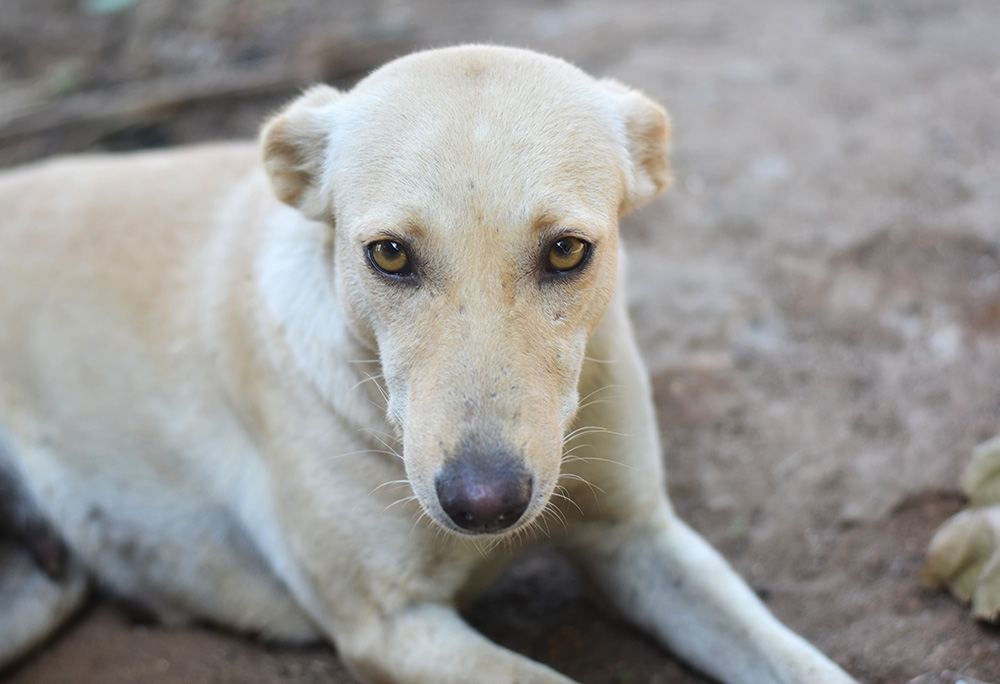
2. Taunting/Teasing
Little kids love to play! They often don’t understand that they are doing anything wrong, especially if they seem to be getting a reaction from the dog that they think is funny or positive.
If they take a dog’s toys, that dog might cry, bark, or respond in a way that gets a reaction. This can be stimulating to a child, thinking that they are inviting the dog to play.
In all actuality, they are taunting the dog without realizing it, and the dog does not understand exactly what’s happening either. The dog can become very frustrated, stressed, and- you guessed it—aggressive.
So, while it might be funny watching a toddler run away with a dog toy and the dog happily chasing them along, it can become problematic quickly.
3. Resource Guarding
Dogs can become possessive of their belongings. Resource guarding is a huge behavioral problem among dogs, the main reason behind it being the dog’s fear that they will lose items they consider valuable. It can result in aggression, including bites.
If your dog is very possessive of resources, this is a threat and puts a child in danger who may be interested in the same objects like toys. Resource guarding is certainly an issue that needs to be worked out with a professional.
If you need to speak with a vet but can't get to one, head over to PangoVet. It's our online service where you can talk to a vet online and get the advice you need for your pet — all at an affordable price!

4. Jealousy
If your dog was there before your child came into the picture, they might be a little jealous. After all, dogs form strong social bonds and if it seems that the little one takes up all of your attention, they may feel like their relationship with you has changed. This can cause your dog to, in a way, resent the child’s presence.
Sometimes the dog will try to push in between you and the child to get your attention, and this can be manageable. However, if the dog is starting to get aggressive towards the child, you can really have a problem on your hands.
5. Intolerance
Some dogs simply don’t like the energy the kids bring around. Can you blame them? There are even people who refuse to have kids because they just don’t want to deal with that kind of stress. The noise, movement and general chaos that come along with kids can be very difficult for some dogs to adjust to resulting in anxiety.
Your dog might have a type of personality that just doesn’t meld very well with a young child’s energy and dogs find children’s behaviors unpredictable and stressful. Oftentimes, this happens with older dogs when they haven’t really been exposed to children and then meet them for the first time.
Lack of socialization with children as a puppy can cause a young child to seem like a completely foreign thing which may result in anxiety, fear and possible aggression.
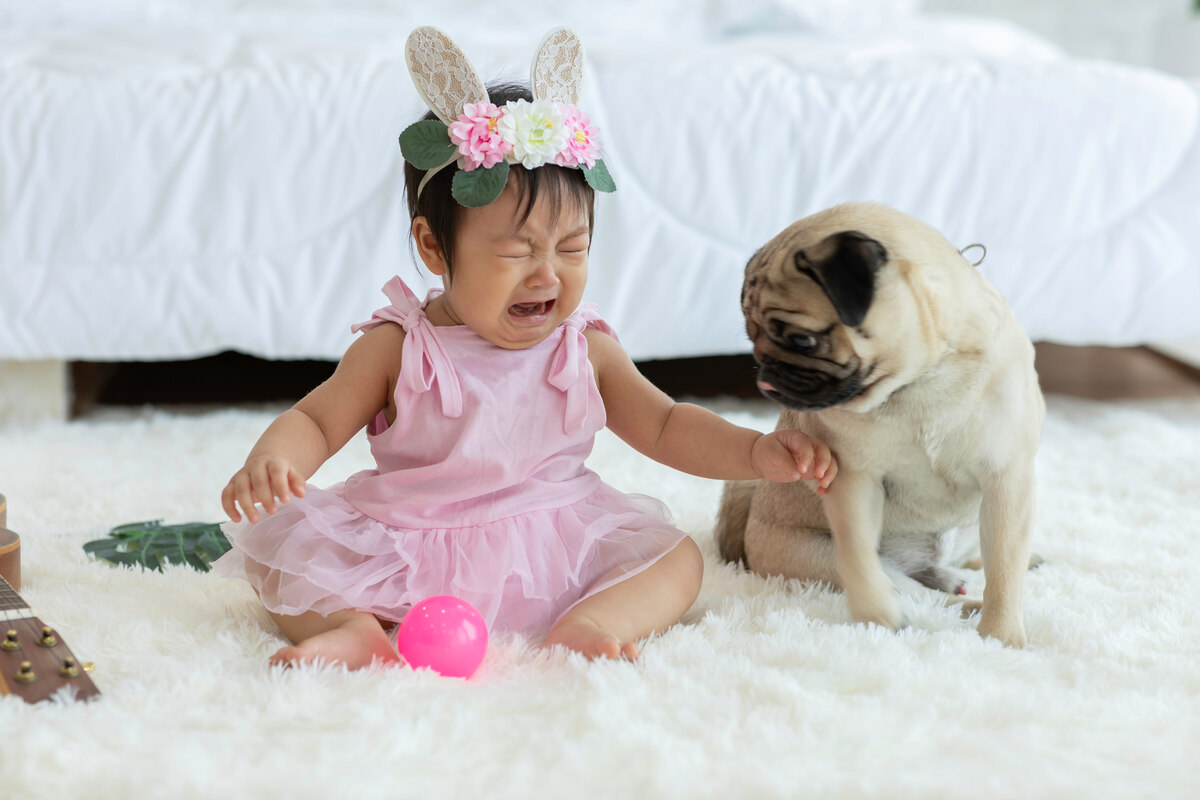
6. Injury
If your dog has recently been injured, it can cause an aggressive reaction towards children. Kids tend to be very bouncy and unpredictable, bumping into or flopping on top of the dog. If the dog is injured, you may or may not be aware of it, but it might catch you off guard when your dog responds aggressively toward your child.
It is important to get them examined by your veterinarian to rule out any potential injury that you might not be able to see. For example, if your dog jumped and hurt their hip, you might not be able to see that with your naked eye.
But you can look for other signs of a problem, such as limping or yelping when they are touched in certain spots. If your dog is acting aggressively towards your child because of injury, follow your vet’s advice and keep them separated until the underlying issue is managed.
7. Illness
Illness can cause major behavioral changes in our canine friends. For example dementia (or cognitive dysfunction syndrome) can reduce a dog’s ability to cope with stressful or different situations. This can lead to an increase in fear, anxiety and aggression. Discomfort due to things like arthritis can also lead to an unexpected aggressive response. If your dog is showing sudden behavioral changes of any kind, including aggression towards children, it’s vital you get them checked out by your veterinarian so they can diagnose the problem, advise you on the best course of action and implement a suitable treatment plan.
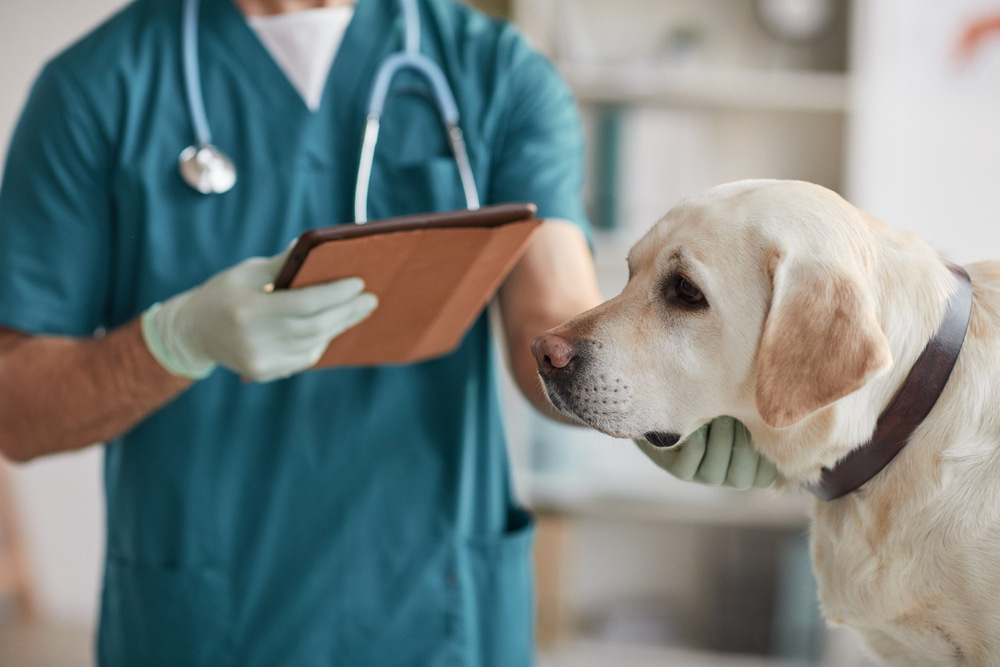

Preventing Dog Bites and Aggression
By teaching your children to respect animals and educating both yourself and them about dog body language, you can supervise and manage interactions and remove your dog from situations that may escalate and result in aggression. Here are some important things to consider.
Teach children to respect dogs- both dogs and children have to learn how to respect one another mutually. It is foolish of us to expect a dog to lie down and take any treatment given to them without responding. Children should be taught never to approach a strange dog and that all dogs need alone time. They should never disturb a dog that is sleeping or in their crate or safe place.
Keep young children and dogs separate unless an adult is supervising interactions. Baby gates can be an effective way to keep them apart as a dog can still see and hear what is happening so is not isolated from family life. It is our job as dog owners and parents to ensure we’re creating the safest environment possible.
Learn about dog body language, dogs usually show clear signs of being anxious or uncomfortable before they resort to aggression. Examples are lip licking, turning away, wide “whale” eyes and yawning. Be aware of situations that could escalate, for example a child taking a dog’s toy or food.
If your dog seems to be exhibiting fear and aggression then seek help from a veterinary behaviorist as soon as possible. Remember never to punish your dog for growling or other signs of aggression as this is likely to make the situation worse.
Training and Socialization
Early socialization, with positive social interactions with children as a puppy, means a dog is much more likely to grow up being comfortable being around children, and much less likely to become fearful or aggressive.
Ongoing reward based training is also important throughout a dog’s life. When it comes to aggressiveness or any other behavioral issue, you should always tackle it with a professional to ensure you are making the right decisions in your teachings.
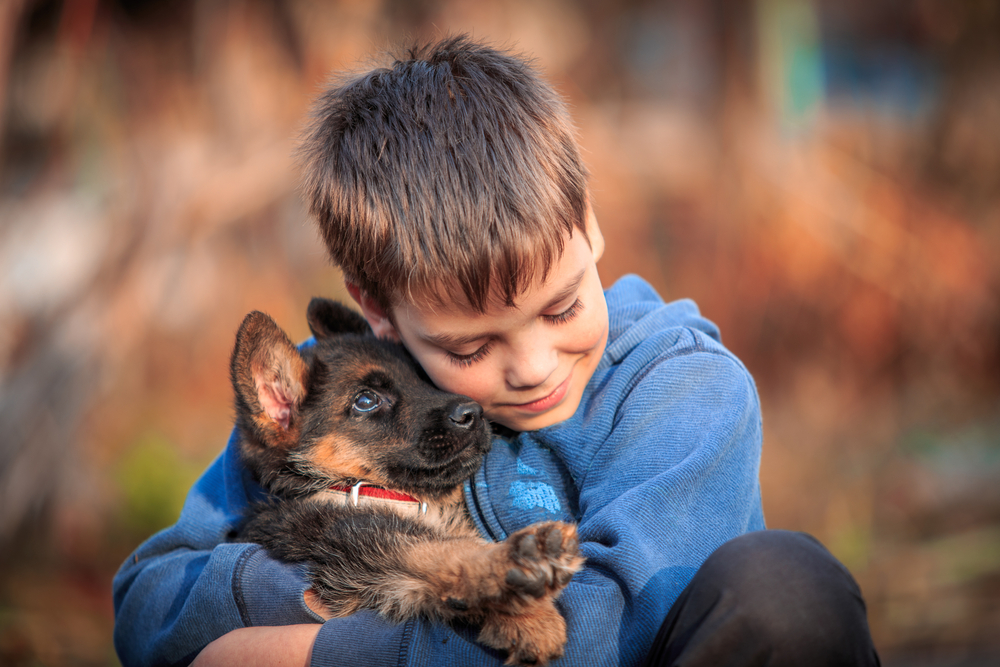
Rehoming: When Is It Necessary
If your dog has shown signs of aggression towards children, you must separate them from any children while you seek professional support from your vet.
However, the fact of the matter is, you can’t have a dog living in your home that will be aggressive toward your children. Dogs are incredibly powerful animals, and one bite can lead to something as harmless as a skin abrasion to something much more serious and potentially fatal.
If you have exhausted every avenue of resolve and the issue persists, you cannot put your child at risk. Rehoming in this case might be the only step to take.
A dog that shows any aggressive tendencies towards children should be in homes without them to protect the well-being of both parties. If you find yourself in this situation, you can reach out to a local rescue or shelter that can guide you every step of the way.
You might even be able to enroll your dog into a foster program until a home becomes available to them. Knowing their unique personality, you can help the rescue shelter place them in the best home possible.
If a dog feels that they are in a predicament where they are stressed enough to act aggressively, they are not in a stress-free environment. It is our responsibility as dog owners to provide this safe environment for them. If we can’t, exploring other options might be the only way to go.

Conclusion
Now you understand a little more about why a dog might act aggressively towards children. Most aggression is fear based but there can be many contributing factors like illness, pain and resource guarding. Keep in mind that if the dog shows any aggressive tendencies towards little ones, it is a major red flag and the issue must be addressed or the aggression is likely to escalate. Reach out to your veterinarian for advice and support and they may refer you to a behaviorist.
Always supervise when children and dogs are interacting, learn about dog body language so that you can pick up signs of your dog becoming fearful or anxious more quickly. Teach children how to behave respectfully around dogs.
Featured Image Credit: Przemek Iciak, Shutterstock
